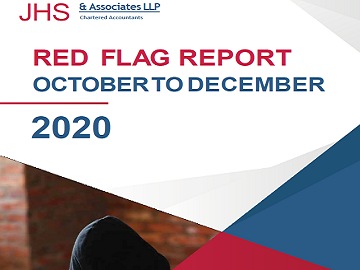Reference: Securities and Exchange board of India
Update:
Reporting of changes in terms of investment
SEBI has made it mandatory for mutual fund houses to inform valuation agencies and SEBI registered credit rating agencies immediately about any changes in terms of investments, including extension in the maturity of a money market or debt security, along-with reasons for such changes.
Earlier, fund houses were required to inform the same to valuation agencies only. Now it is mandatory to inform both valuation agencies and SEBI registered credit rating agencies.
Implication:
Any changes in terms of investments alongwith reasons for such changes to both valuation agencies and SEBI registered credit rating agencies.
Reference: Reserve Bank of India
Update:
Guidelines on Compensation of Whole Time Directors/ Chief Executive Officers/ Material Risk Takers and Control Function staff:
RBI has released final guidelines on the compensation of Whole Time Directors/ Chief Executive Officers/ Material Risk Takers and Control Function staff of all private banks, which will come into effect starting April 2020
As per the new guidelines, banks will have to ensure that the compensation of the CEOs, directors and other key personnel are adjusted for all types of risks. Compensation outcomes must be symmetric with risk outcomes, and payouts sensitive to the time horizon of the risks. The mix of cash, equity and other forms of compensation must be consistent with risk alignment.
At least half of the total compensation of bank chiefs will now mandatorily have to be in the form of variable pay, and the total variable pay has now been capped at 300 percent of the fixed pay.
Additionally, deferral arrangements are made mandatory for the variable portion of the compensation, with at least 60% of the total variable pay now under such an arrangement. The deferral period would be a minimum of three years
Update:
Liquidity Risk Management Framework for Non-Banking Financial Companies and Core
Investment Companies:
RBI wants NBFCs to monitor liquidity risks through a stock approach to liquidity. The RBI directive will be applicable to all non-deposit taking NBFCs that have an asset size of Rs 10,000 crore or more. It will also be applicable to deposit-taking NBFCs irrespective of their asset size. It will mandate them to keep a liquidity buffer as per their liquidity coverage ratio.
The new LCR requirement will be binding from December 2020 with the minimum high quality liquid asset of 50 percent of LCR, and progressively reaching up to the required level of 100 percent by December 2024.
The monitoring tools shall cover concentration of funds by counterparty/ instruments/ currency and availability of unencumbered assets that can be used as collateral for fund raising.
The proposed tools should also have certain early warning market-based indicators, such as book-to-equity ratio, coupon on debt raised, breaches and regulatory penalties for breaches in regulatory liquidity requirements.
RBI has asked NBFCs to segregate into granular buckets the 1-30-day time bucket in the statement of structural liquidity to 1-7, 8-14, and 15-30 days and ensure that their net cumulative negative mismatches in the maturity buckets of 1-7, 8-14, and 15-30 days shall not exceed 10, 10 and 20 percent respectively of the cumulative cash outflows in the given time buckets.
Update:
Extension of direction period- The Adoor Co-operative Urban Bank Ltd, Adoor, Kerala:
RBI had issued directions to The Adoor Co-operative Urban Bank Ltd, Adoor, Kerala, from close of business on November 9, 2018 for a period of six months, which were last extended up to November 09, 2019. RBI has extended the validity of the period of direction further period of 6 months i.e. till 9th May 2020.
Implications:
The bank will follow the directions for further period of 6 months till 9th May 2020
Update:
RBI releases the Report of the Working Group to Review the Regulatory and Supervisory Framework for Core Investment Companies:
The Reserve Bank of India had constituted a Working Group (WG) to Review Regulatory and Supervisory Framework for Core Investment Companies (CICs), on
July 03, 2019, with Shri Tapan Ray, former Secretary, Ministry of Corporate Affairs, Government of India as the Chairperson.
The WG has submitted its report to the Governor. The key recommendations of the WG are as follows:
i. Capital contribution by a CIC in a step-down CIC, over and above 10% of its owned funds, should be deducted from its Adjusted Networth, as applicable to other NBFCs. Further, step-down CICs may not be permitted to invest in any other CIC, while allowing them to invest freely in other group companies;
ii. The number of layers of CICs in a group should be restricted to two. As such, any CIC within a group shall not make investment through more than a total of two
layers of CICs, including itself;
iii. Every Group having a CIC should have a Group Risk Management Committee (GRMC);
iv. Constitution of the Board level committees viz., Audit Committee and Nomination and Remuneration Committee should be mandated ;
v. Offsite returns may be designed by the Reserve Bank and may be prescribed for the CICs on the lines of other NBFCs. Annual submission of Statutory Auditors Certificates may also be mandated; and
vi. Onsite inspection of CICs maybe conducted periodically.
Implication:
The report is placed on the RBI website today for comments of stakeholders and members of the public. Comments on the report may be sent by November 30, 2019
through email.













